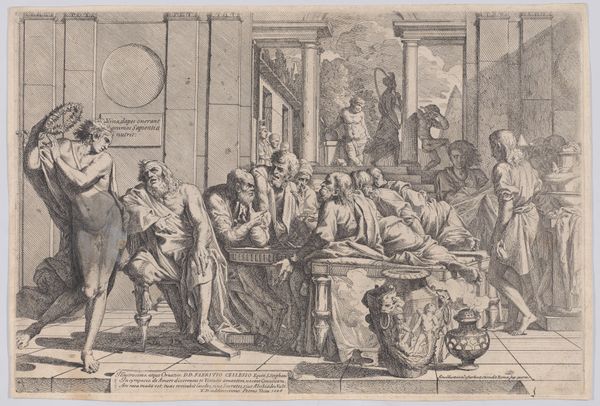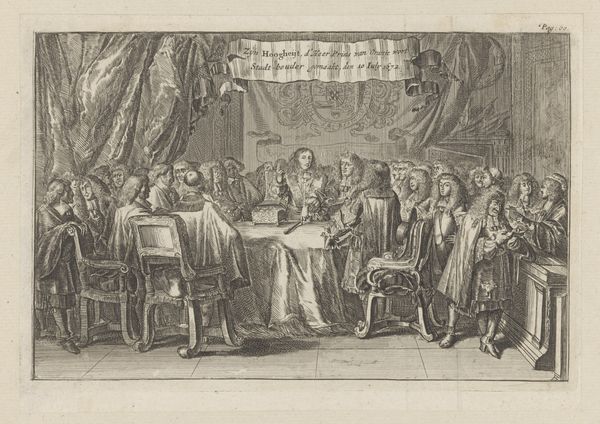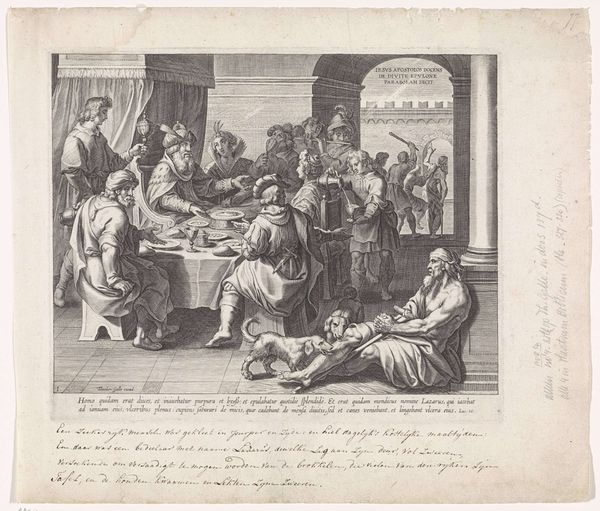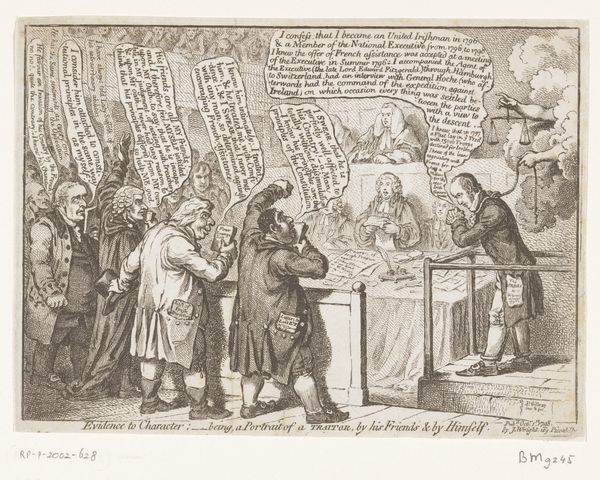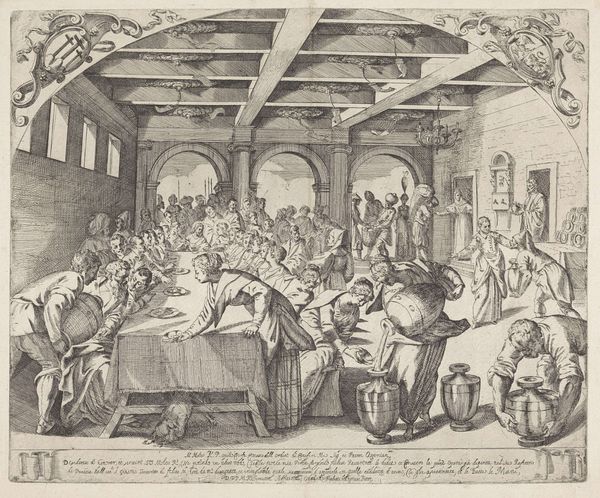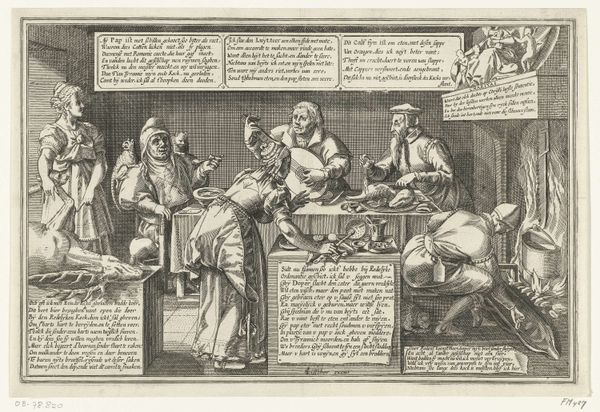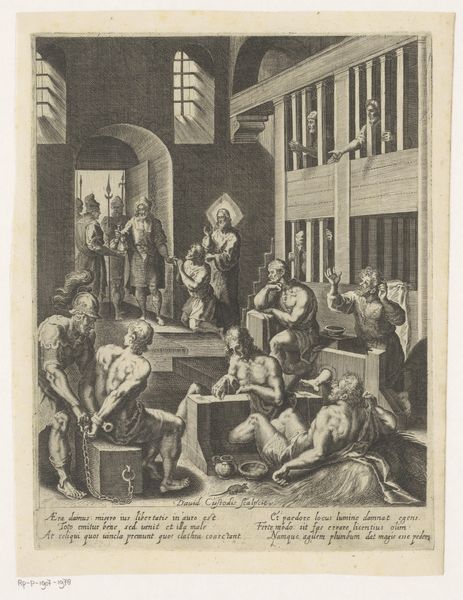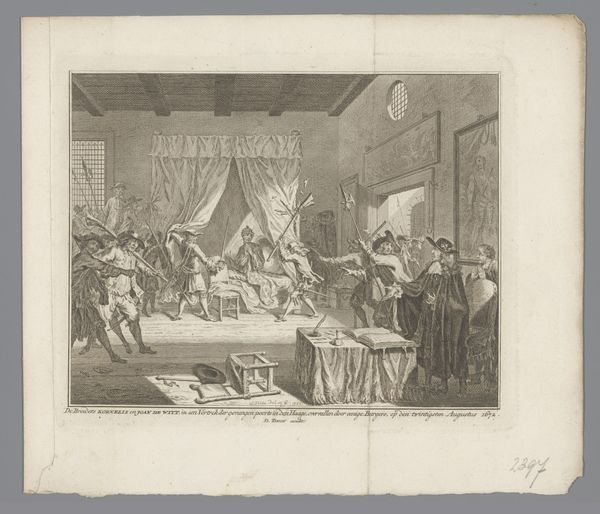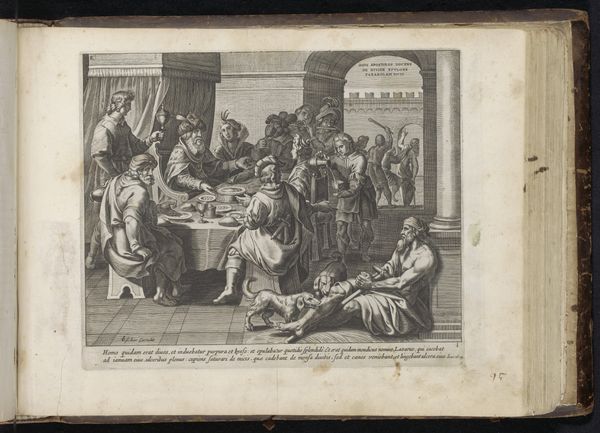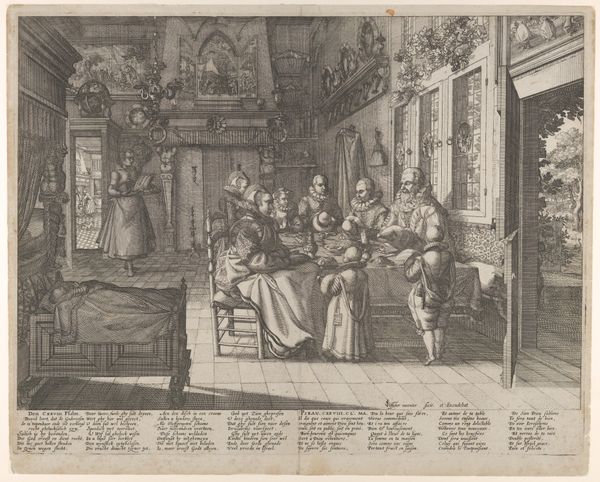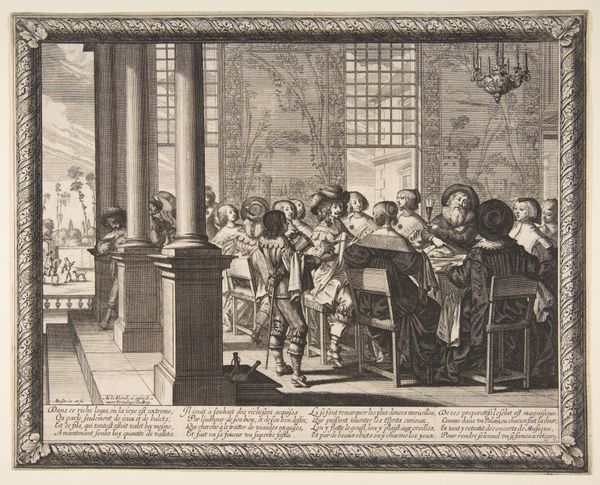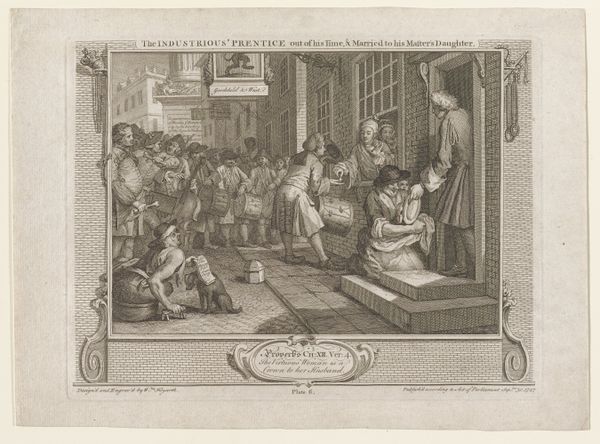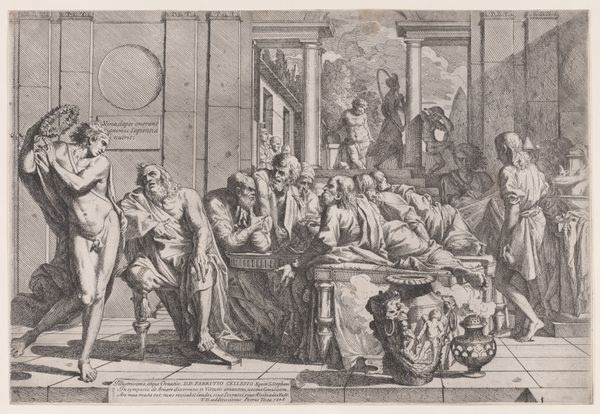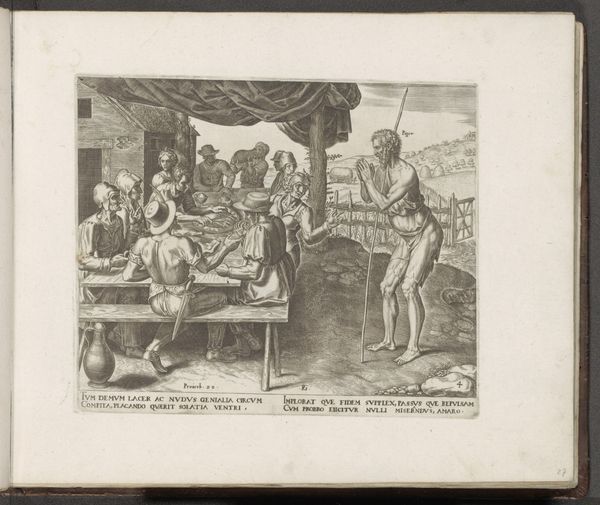
print, engraving
#
narrative-art
#
baroque
# print
#
figuration
#
coloured pencil
#
watercolour illustration
#
history-painting
#
engraving
#
watercolor
Dimensions: height 275 mm, width 335 mm
Copyright: Rijks Museum: Open Domain
Curator: Consider this engraving, "Christus te gast bij Simon de Farizeeër" by Cornelis Galle I, created circa 1590-1610. It resides in the Rijksmuseum and appears to depict a scene of biblical feasting. Editor: It has quite an interesting composition, and so many figures! How do you approach a piece with so much going on? What is the key structural element here, if there is one? Curator: We must look beyond narrative, searching instead for its underlying structure. Note how Galle has arranged the figures along a horizontal plane, contained by a receding architectural space. Lines of sight and gesture connect figures across this plane, creating dynamic visual relationships. Can you see the use of chiaroscuro—the interplay of light and shadow—and how this affects the pictorial space? Editor: I do see the use of contrast and the way it guides my eye. I am also drawn to the varied textures created through the engraving technique itself. Does that granularity contribute meaning? Curator: Precisely! The varied widths and depths of the engraved lines create tonal variations. Consider the lines defining drapery versus the smooth skin; how do these variances affect your perception of the figures' three-dimensionality and emotional states? This is all a function of form. What, finally, does this articulation of surface treatment communicate, in your view? Editor: I guess the different qualities and varied marks make this interior seem like more of an enveloping experience; there is a certain intensity to the treatment of surface that evokes a dramatic biblical experience. It makes me consider how vital technique and design are for evoking an emotional and psychological impact. Curator: Indeed, it reveals how much is communicated beyond subject matter.
Comments
No comments
Be the first to comment and join the conversation on the ultimate creative platform.
